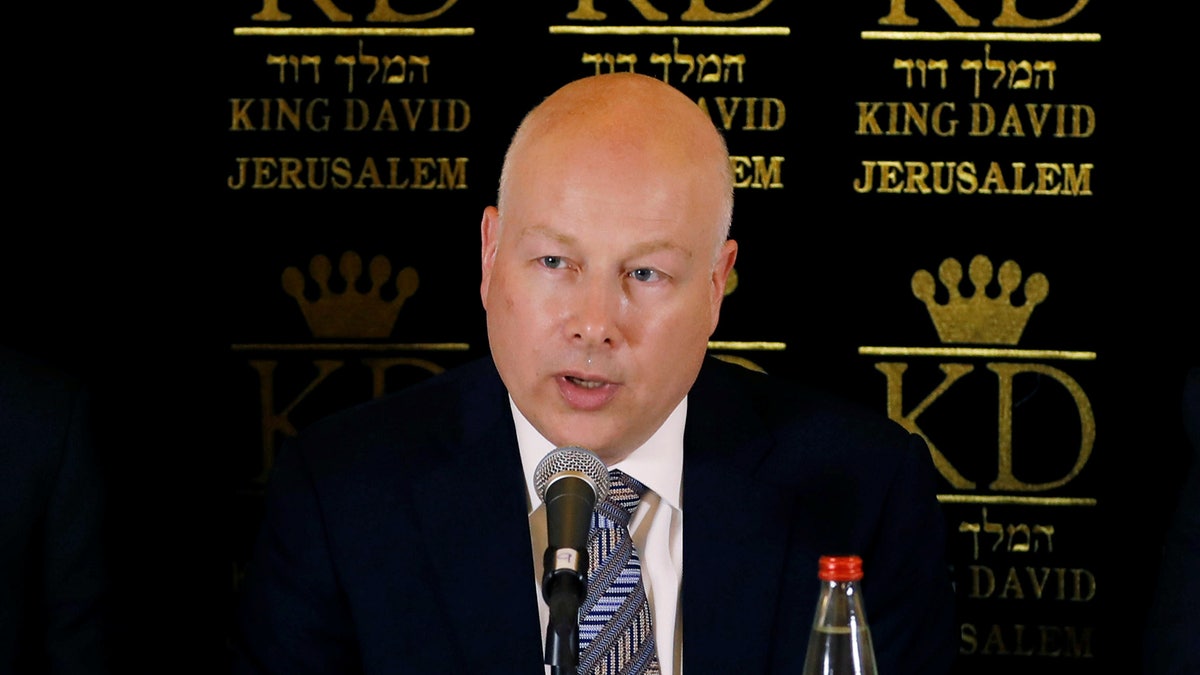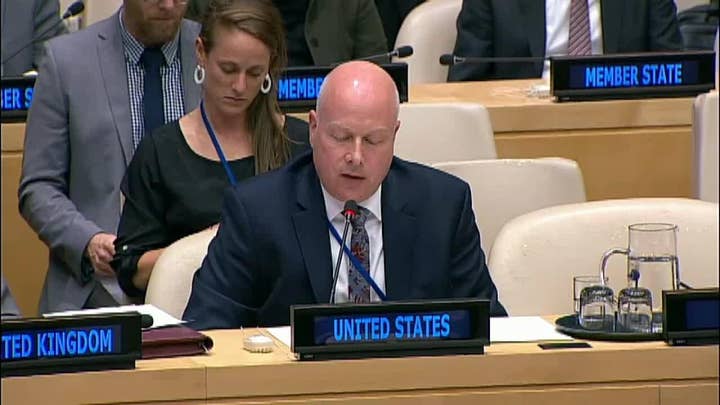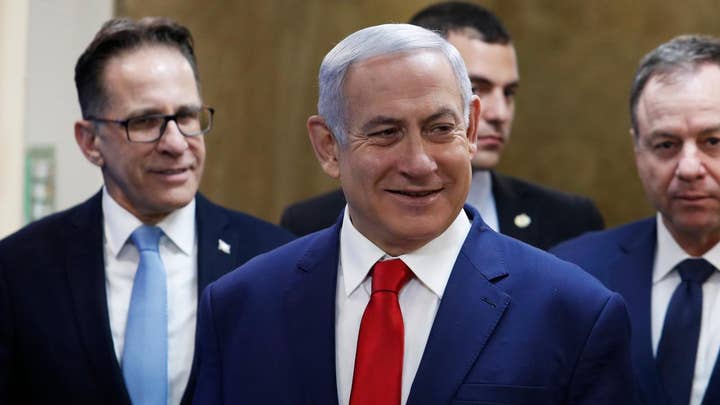Israeli military responds to rocket fire from Gaza
Then Iron Dome missile system engages rockets fired into southern Israel; Trey Yingst reports from the Israeli-Gaza border.
UNITED NATIONS – President Trump’s Middle East envoy lashed out Tuesday at the United Nations Security Council over its handling of peace talks between the Israelis and Palestinians, taking aim at what he called “the constant drumbeat of tired rhetoric that is designed to prevent progress and bypass direct negotiations. It is time to retire that rhetoric.”
The envoy, Jason Greenblatt, pointed out that the Israelis and Palestinians must agree to any final peace settlement.
He urged members to accept fresh thinking. “Peace will require honesty and a willingness to consider new ideas, as well as courage and hard compromises. This is a time for us to speak to each other candidly, not in stale slogans and talking points.”
Greenblatt told the council that while Trump was not yet ready to announce the political portion of his plan for Mideast peace, he said, “We hope to make that decision soon.”
Raising eyebrows from the chamber, he took a swipe at the many resolutions the council had passed on Israel, saying the administration’s vision for peace would not be ambiguous.

Jason Greenblatt, President Trump's special envoy to the Mideast. (REUTERS/Ronen Zvulun, File)
“This conflict will also not be resolved by constantly referencing the hundreds of U.N. resolutions on the issue. The constant reference to these heavily negotiated, purposely ambiguously worded resolutions is nothing more than a cloak to avoid substantive debate about the realities on the ground and the complexity of the conflict.”
Greenblatt continued, “I ask all of you to reserve judgment until we publish, and you read, the 60-or-so pages that detail what peace could look like.”
He said the Palestinian claims' over East Jerusalem as its capital represented an aspiration, not a right. “Aspirations belong at the negotiating table, and only direct negotiations between Israel and the Palestinians can resolve the issue of Jerusalem, if it can be resolved.”
Greenblatt made it clear where a solution would not be found. “It will not be resolved in this chamber, in this institution, or in any other capital around the world.”
He continued, “Many would rather rail against the supposed evils of what they routinely call an 'illegal occupation' than engage constructively on the disputes that characterize the conflict today. That's not a productive dialogue.”
LISA DAFTARI: KUSHNER SAYS OPPOSITION TO IRAN BRINGS ISRAEL, ARAB NATIONS CLOSER TOGETHER
Still, Greenblatt acknowledged both sides would need to make compromises to solve a conflict that the world wanted resolved. He used the administration’s recent economic plan seeking to raise $50 billion to help rebuild the Palestinian and neighboring economies as a model of as what could be if the sides sign on to a final peace agreement.
“We all want this conflict resolved,” he said. “We all want to help those who continue to bear the unendurable weight of this conflict - whether they are Palestinians, Israelis, or their many friends and neighbors in the region.”
He continued, “So let’s start by acknowledging that there are no short cuts and that fictions of international consensus, international legitimacy, arguments about who is right and who is wrong as a matter of international law, and aspirations expressed as rights won’t achieve peace... a solution cannot be forced upon the parties.”
Greenblatt’s comments rankled other countries on the Security Council who would be key partners in any Mideast peace plan. Several ambassadors insisted that there was an international consensus for the Palestinians to achieve independence in peace negotiations.
“It is the U.S. that has left the international consensus,” German Ambassador Christoph Heusgen said.
Heusgen also criticized Greenblatt for his dismissive comments on U.N. resolutions, saying the U.S. has insisted the world abide by Security Council resolutions on other world conflicts, such as the North Korean nuclear standoff.
CLICK HERE TO GET THE FOX NEWS APP
“For us, international law is not an a la carte menu,” Heusgen said.
His comments were echoed by the ambassadors of the U.K., France, Belgium and Poland.
The Associated Press contributed to this report.







